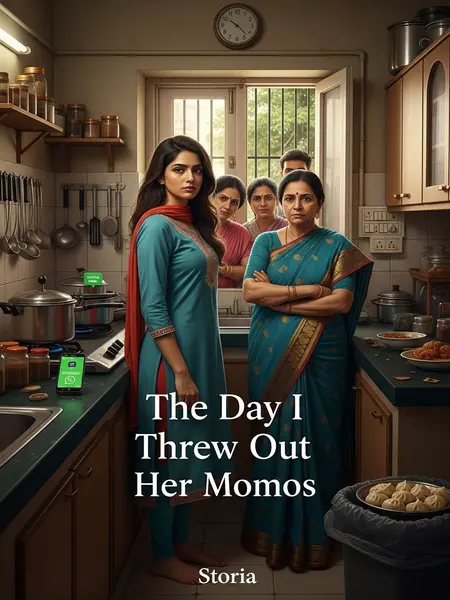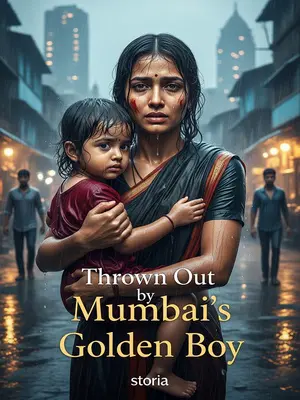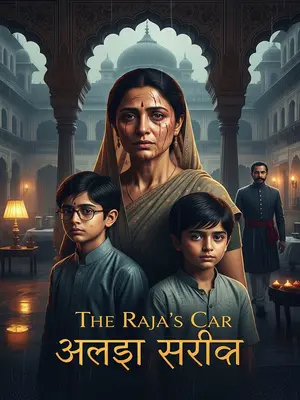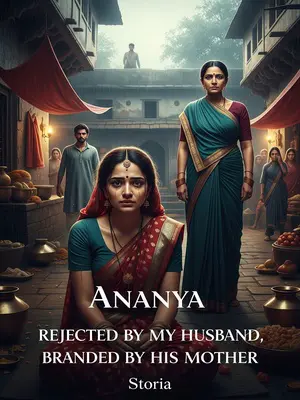Chapter 3: The Pressure Cooker Bursts
Ritu’s belly was huge—five months pregnant, but her temper hadn’t cooled. She stood, hands on hips, sari pulled tight, the kind of woman who’d fight even during labour. I felt a grudging respect, mixed with irritation.
Big brother continued, his tone measured, listing sacrifices like a CV: "Neha, Mumma knows you love momos. She made them specially for you—cleaned the paneer, washed the veggies, bought chicken breast because you don’t eat red meat. Mumma says machine-ground meat isn’t tasty, so she chopped it by hand. When you first came, didn’t you say her momos were the best?"
I remembered that first meal—warmth, laughter, the comfort of being welcomed. It felt like a lifetime ago. I’d even posted about it on Instagram—#bestmomos #homemadewithlove. Who’d have guessed I’d end up here?
He kept going: "Mumma insists on hand-rolled wrappers. She kneads, rolls, wraps each momo herself. Where else do you get such handmade momos?"
It’s true—momos outside aren’t handmade anymore. I remembered her saying, ‘Haath ka swaad hi alag hota hai.’
Mother-in-law added, voice quivering: "I was afraid you’d feel left out after marrying in, so I always stayed with you, treated you like my own daughter. You don’t like breakfast, so I made extra momos for you to have each morning. But you threw away all my good intentions. What did I do to make you angry? Tell me, I’ll change. Wuwuwu…"
She broke down, words catching in her throat. Her tears were real, but her speech sounded rehearsed. I twisted the edge of my dupatta, hands shaking, unsure whether to laugh or cry.
See? ‘Explaining’ just means listening to them scold me. They talk about my mother-in-law’s goodness, accuse me of being ungrateful. No one even asks why I did what I did. The verdict’s always decided before I open my mouth.
I was about to speak, but Ritu cut me off, her voice sharper than a whistling cooker: "Neha, do you even have a conscience?
"My mother treats you so well, and how do you repay her?
"Since you married my second brother, have you ever bought my mother a single saree?
"Two months, she pays for your food, cares for you, spends her pension on you!
"You’re the textbook definition of an ungrateful wretch!"
I couldn’t help but laugh, bitterness spilling out. "Wah, kya baat hai. Aap log toh bas mahan ho, na? Bas mujhe hi sab galat samajhte ho."
Big brother pointed at bhabhi and jiju: "Ask your bhabhi, ask your jiju—does Mumma treat them any differently?"
Bhabhi nodded, eyes down: "Mumma is pretty good."
Jiju agreed, shrugging: "Yes, Mumma treats us all the same."
Ritu raised her voice, rattling off her logic like a lawyer: "Did you hear that? Bhabhi and jiju aren’t even her own, but she treats them like family. Could she treat only you differently? You’re a new bahu; she wouldn’t dare show you attitude. If she did, it’s only because you started it!"
I laughed, voice flat: "You’ve said everything—good and bad."
Ritu snapped, "Am I wrong? Today you threw away the momos, and my mother didn’t even dare get angry—she could only cry. That proves you bully her! If second brother were here, he’d have slapped you by now!"
The word ‘slapped’ stung, old-school and ugly. My stomach twisted. Bhabhi looked like she wanted to say something, but just gripped her dupatta tighter and stayed quiet.
Ritu’s anger was boiling over, her husband holding her back: "Calm down, yaar, think of the baby."
He looked scared—of her temper, and of her hurting herself. The rest of the family watched, eyes wide, no one willing to help.
Everyone had their say. Even if my mother-in-law wasn’t perfect, they all believed it was my fault. Why bother explaining?
I said it straight: "It was Arjun who told me to throw them away."
A hush fell. My words dropped like a stone in a pond.
Arjun is my husband. Rajeev the elder brother, Ritu the firebrand. The family tree flashed before my eyes.
Ritu got angrier, slapping her own thigh for emphasis: "Bakwas! Even if my brother spoils you, he’d never say to throw away Mumma’s hard work! You do wrong, then blame him!"
Her husband tightened his grip around her waist. She struggled, almost breaking free, her sari riding up.
He begged, "Don’t jump! Don’t jump!"
Mother-in-law wailed louder, pounding her chest: "Neha, bolo sach! Arjun is at work, not at home. How could he tell you to throw the momos?"
My husband’s job is confidential—when he’s at work, his phone is locked away. Everyone knows this.
So when I said that, no one believed me. Their eyes screamed ‘liar.’
I tried, "He told me before, if I don’t want to eat something, just throw it away—don’t force myself."
The words sounded weak, even to me.
Ritu shot back: "He was talking about takeaways, not Mumma’s momos!"
Big brother’s face darkened, arms folded: "Neha, don’t think just because Arjun isn’t here you can say anything. Face your problem."
Face what? No matter what I said, I was always the outsider, always wrong. I looked around—the family photos, the old calendar, the pile of magazines. My throat burned with all the things I couldn’t say.
Seeing it was already noon, I got up. "I’ll make something for all of you."
I didn’t wait for a reply—just headed to the kitchen. The old clock chimed twelve, echoing the tension.
Mother-in-law called after me: "I’ll do it, you don’t know how to cook."
Her slippers slapped the floor, voice tired but pride unbroken.
Ritu pulled her back, pointing with her chin: "If she doesn’t know, she should learn! She’s a bahu now, she should serve you! Can you serve her for a lifetime?"
Her words were triumphant, others murmured agreement.
Mother-in-law sighed: "She doesn’t make tasty food."
She looked at the others for sympathy, dabbing her cheeks—this time leaving faint streaks of kajal on her faded cotton pallu.
Ritu snorted, "I don’t care if it’s tasty or not—let her make it, even if it’s rubbish, I’ll eat!"
She folded her arms, daring me.
That actually suited me. For the first time all morning, I almost smiled.
I went to the kitchen, pulled out the biggest pressure cooker, washed it. The clang of steel plates, the hiss of the cooker, sticky heat clinging to my skin—it felt like I was boiling along with the momos. Voices from the living room mixed with traffic sounds and the occasional ‘Sabzi le lo!’ from outside.
I boiled a huge pot of water, dumped in all the momos. The sound was oddly satisfying.
Once they were cooked, I served big bowls to each person, hands shaking. The steam fogged my glasses. I nearly dropped a bowl as my nerves got the better of me.
I brought out the bowls, the chutney extra spicy—a small revenge. The family dived in, hands grabbing, chopsticks forgotten. Bhabhi and jiju helped, moving quietly, glancing at me. Bhabhi almost smiled—nervous encouragement.
Mother-in-law sat stiff, hands in her lap, lips pressed tight. The others dug in, but she just watched, eyes darting between me and the food.
I picked up a momo, offered it to her: "Mumma worked so hard—let your bahu feed you. Thank you for taking care of me."
She clamped her mouth shut, jaw set, chin high. The baby next door went quiet.
"Mumma, try one. You made them yourself. At least taste."
Ritu pleaded, half-mocking: "My mother loves momos! Mumma, eat! Rare for her to get any respect—enjoy it."
Mother-in-law turned her face away: "I won’t eat. I have no appetite."
She wiped her tears, the whole room watching. Ritu glared at me, mouth full: "See how angry you’ve made my mother."
She stuffed in more momos, cheeks bulging, hands moving fast.
Rajeev ate two, frowned, and spat them out: "What’s in this filling?"
Bhabhi coughed, picking through her momo: "Mine has tissue paper and noodles!"
Jiju grimaced: "There’s vermicelli in mine."
Ritu bit down, then froze. She spat out a small bone: "Aiyo! Why is there a bone?"
Rajeev poked at another: "Why is the filling so messy? The taste is weird—hard to eat."
Ritu spat again: "Even the wrapper tastes like mud. Are these really Mumma’s handmade momos?"
I kept my face blank, but couldn’t hide a hint of triumph: "They really are her handmade momos."
Ritu’s voice wobbled: "Impossible! Mumma’s so skilled—how can they taste this bad?"
I smiled, sharp as a knife: "You’ll have to ask your mother. Funny, isn’t it? She made them, but won’t eat them."
Mother-in-law burst into tears: "Neha, if you didn’t want momos, just say so. Why did you harm me? What did you put in the filling and the flour?"
Her accusation echoed, desperate. The family gasped, eyes darting to me.
I was speechless for a moment. My anger rose—months of silent suffering bubbling up.
I picked up the bowl of momos and flung it at her.
Time seemed to pause. Even the neighbour’s TV, always blaring, fell silent. Someone outside hawked ‘Sabzi le lo!’ but inside, no one moved.
"Splash!"
Mother-in-law was covered—head to toe—in momos. Chutney dripped down her arms, staining her gold bangles. For a heartbeat, no one moved. Then, somewhere deep in the flat, a door creaked open—someone else had just arrived.
My phone kept buzzing—Chachi sent a crying emoji, while Bua wrote, ‘Yeh toh hadh hai, beta.’ Even my own mother sent a single, silent missed call.













